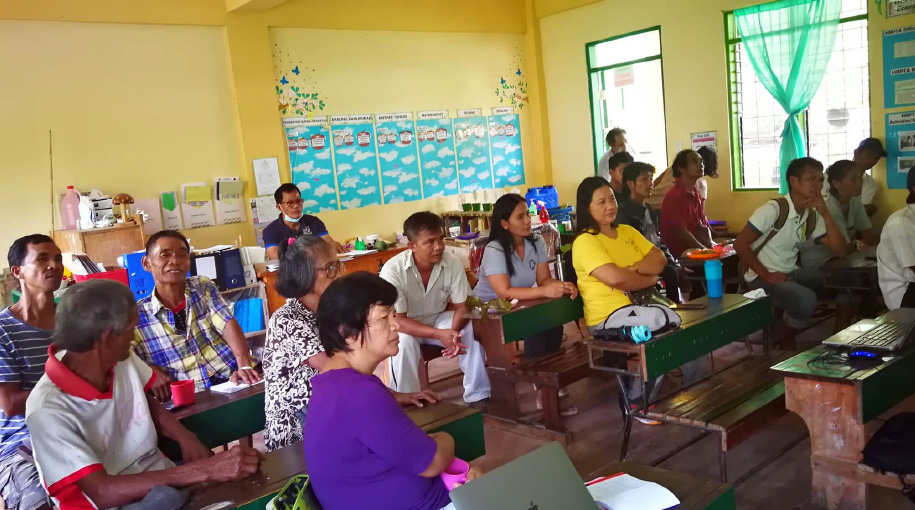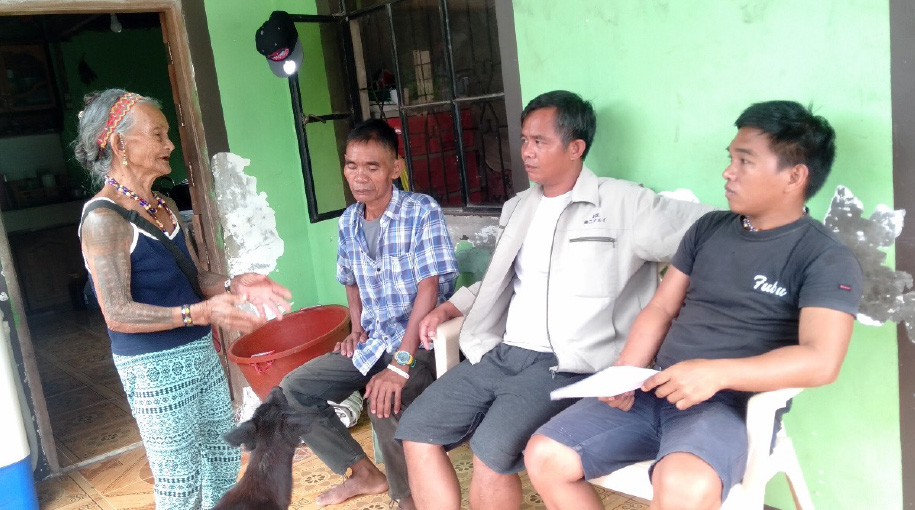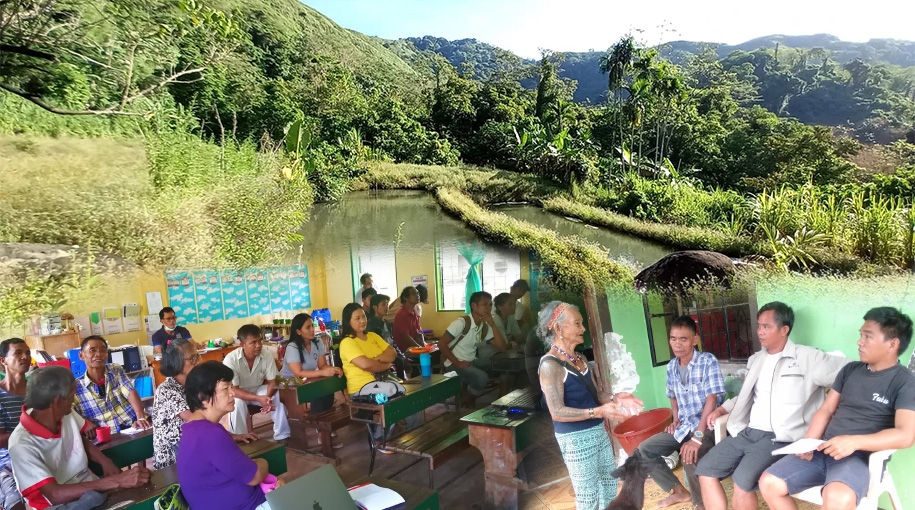“Domain is interrelated to ancestry. Our ancestral domain is part and parcel of the life of our forefathers. From there, they exist as a community of people who establish a permanent, unique and independent settlement, distinct and separate from others. We assume that our forefathers have the noble intention to preserve, develop and protect their domain for us and the succeeding generations. It is therefore our moral and natural obligation to keep intact, preserve, promote, develop and protect the interest of our ascendants.”
Rogelio Banggot, a Licoy elder and the Ganak Municipal Representative, highlighted the ultimate objective of delineating their ancestral lands during a meeting of Licoy Community mobilizers and committees on September 10, 2022 at Magawod, Poblacion, Paracelis, Mountain Province, Philippines as part of the Ganak da i-Licoy’s initiative to record their history. Their story narrates how their ancestors staked their claims over their ancestral domain in the municipality of Paracelis and over their indigenous knowledge, systems and practices (IKSP), asserting their existence and identity.

The desire to study their history and their land territory was kindled in 2012 when, for the first time, Paracelis celebrated the Indigenous Peoples’ month. During this event, the Licoy and the Ga’dang people were recognized as the original settlers and rightful owners of the vast lands of the municipality among more than 12 indigenous peoples’ groups who flocked to the area from the different provinces of northern Luzon since the beginning of the 20th century. However, despite the encouragement of then Municipal Indigenous Peoples’ Mandatory Representative (IPMR) Antonio Cayog, the delineation of the territory is yet to be completed due to limitations in providing basis such as records of original settlement patterns. Because of these, the Ganak continue to struggle in asserting their claim to their ancestral lands.
This 2022, the Ganak da i-Licoy requested Tebtebba, through its Philippine Program, to assist them in their research and documentation work. Coincidentally, Tebtebba, has been looking for collaborators to operationalize the integrated/holistic approach for indigenous self-determined and sustainable development (IHA-IPSSDD) which, in turn, starts with establishing the existence of the ancestral domain of the partner community. Thus, Tebtebba decided to grant the group’s request, offering its services and facilitating financial assistance for them. In response, Ganak Da i-Licoy committed to lead and ensure a smooth implementation of plans crafted in collaboration with Tebtebba and to mobilize the resources they received. A memorandum of understanding was agreed upon and the work commenced in July of the same year.

A committee for research and documentation, headed by local school teachers, and a committee for organizing and development, led by principal officers of the Ganak, were both created to work with Tebtebba’s Philippine Program team. The research and documentation committee will focus on tracing the territorial formation of ancestral lands, the history of the Licoy people, and their IKSPs while the committee on organizing and development will work on the amendments of the indigenous group’s constitution and by-laws and on securing their legal documents.
Tracing the formation of the customary lands is being done through the listing of genealogies and where ancestors settled starting in the 1700s, which the present generation can recall so far. The results as of August 2022 are partial pedigree charts of at least four ascendancy, partial data on IKSPs particularly on traditional practices including belief and value system and partial data on traditional governance. Meanwhile, the first draft of their constitution and by-laws has already undergone its first reading on July 27, 2022 and is planned to be finalized before the end of August.
“It is very essential to trace family lineage in order to know our relatives, wherever they maybe. [The] present generation ought to know what lineage their parents belong to as knowing one’s lineage is knowing one’s identity. Knowing family ascent creates awareness and sense of belongingness,” Banggot added when asked why there is a need to conduct genealogical studies.
The partnership of Ganak da i-Licoy and Tebtebba, with support from SwedBio, will continue with the genealogical study of the whole Ganak da i-Licoy and the gathering of further data on the indigenous group’s customary land use and indigenous management systems, traditional livelihoods, food systems, and other IKSPs. Changes through time within the territory and trends in the community will also be studied for the rest of the year.


